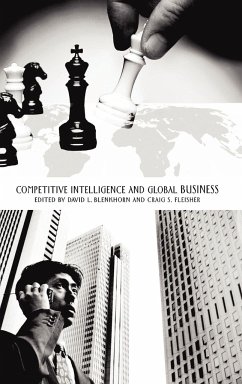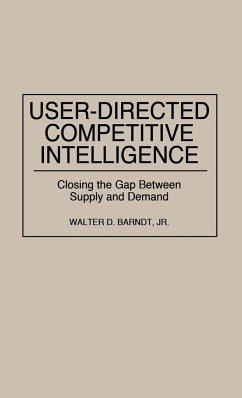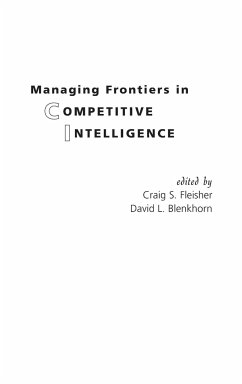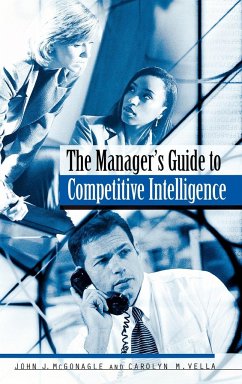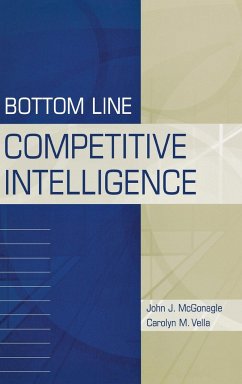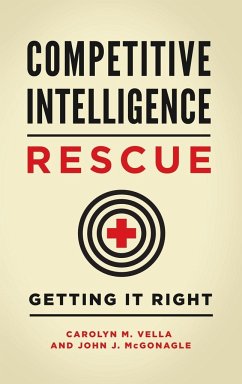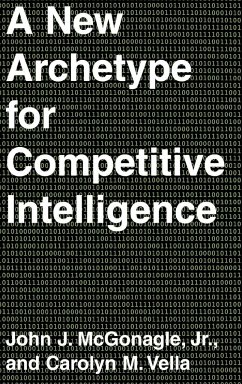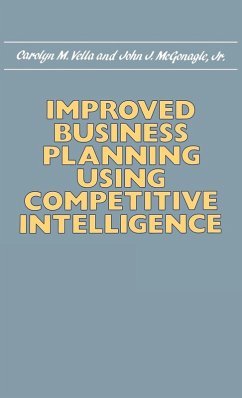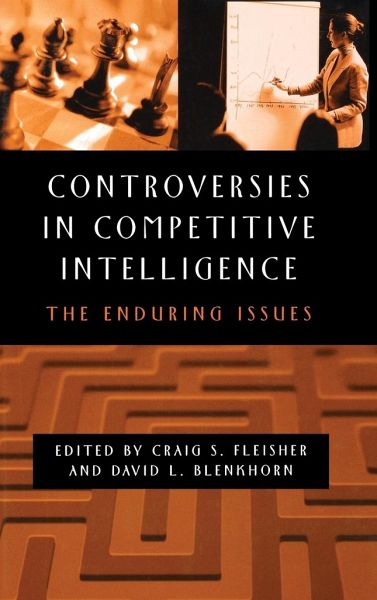
Controversies in Competitive Intelligence
The Enduring Issues
Herausgeber: Fleisher, Craig; Blenkhorn, David

PAYBACK Punkte
44 °P sammeln!
Chosen for their clear, direct relevance to scholars and practitioners in the volatile field of competitive intelligence, the 24 issues evaluated here represent the cutting edge of CI's most pressing concerns. Current, scholarly, pragmatic, and among the first of its kind, this book presents the heart of the field in a way that even the relatively uninitiated can grasp and quickly apply. The authors cover the latest technological advances and their relation to the tools most valued by CI professionals. They also show that despite its enormous range of possibilities, CI has limits. Navigating t...
Chosen for their clear, direct relevance to scholars and practitioners in the volatile field of competitive intelligence, the 24 issues evaluated here represent the cutting edge of CI's most pressing concerns. Current, scholarly, pragmatic, and among the first of its kind, this book presents the heart of the field in a way that even the relatively uninitiated can grasp and quickly apply. The authors cover the latest technological advances and their relation to the tools most valued by CI professionals. They also show that despite its enormous range of possibilities, CI has limits. Navigating the ever-changing organizational and marketplace environments is difficult. A key debate involves what should and shouldn't be done to maximize the beneficial power of CI. Fleisher, Blenkhorn, and the book's contributors present the crucial points of this debate. This book is perfect for practitioners seeking guidance, but also as a supplemental text for students in such courses as marketing strategy and planning, business-to-business marketing, and competitive intelligence itself.




